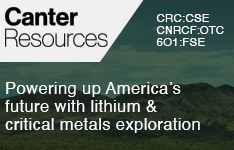First Hydrogen Corp. (FHYD:TSX; FHYDF:OTC; FIT:FSE) announced it has completed three successful vehicle trials of its hydrogen fuel cell-powered vehicle (FCEV) and has now begun trials in London with a large multinational logistics company whose partners use commercial vans for parcel deliveries.
Recently completed trials with Wales & West Utilities (WWU) had the vehicle operating for between six and seven hours per day. The new trials will test the FCEV over eight hours per day with multiple deliveries per hour.
"Parcel delivery companies face a diverse set of challenges and are often exploring multiple zero-emission technologies, including battery and hydrogen technology, to meet commercial and environmental targets," the company said in a release. "These fleets can make up the middle or final stages of the supply chain, which traditionally handle journeys to transport items from local hubs directly to consumers or end-users."
Headquartered in Vancouver, British Columbia, First Hydrogen said it is working to help decarbonize the transportation sector in Europe and North America by manufacturing hydrogen FCEVs and producing and distributing the clean power on which they will run. This closed-loop solution to the vehicle emissions problem addresses supply and demand, the company said.
First Hydrogen has projects in development and underway in Canada, the United Kingdom, and the European Union, in regions having governmental support, aggressive emissions targets, and carbon reduction strategies in place. It also has offices in Montreal, Quebec, and London.
The Catalysts: e-Commerce, COVID Contribute to Demand
The parcel delivery vehicle market is projected to surpass US$210 billion by 2032, according to Global Market Insights.
"The need for quicker and more effective delivery services has led to an increase in technological developments," researchers said. "Consumers today also demand speedy and dependable delivery of their items, which puts pressure on delivery services to find methods that streamline their processes and cut costs. The rising demand for single-day or two-day deliveries will fuel market expansion."
Stellar Market Research also noted the market was poised to take off, valuing it at US$486.47 billion in 2023 and predicting an expansion to US$648.84 billion by 2030.
Technical Analyst Clive Maund recommended First Hydrogen as a Buy when it was CA$3.10 per share.
"Consumers are ordering more online due to e-commerce expansion and the COVID-19 epidemic, which is fueling the parcel delivery sector," Stellar analysts noted. "This resulted in a 37% increase in volume, with 20 billion parcels carried in the United States, and a 29% increase in income, reaching US$171 billion in 2020."
According to First Hydrogen, "This increases the number of delivery vehicles on the roads and therefore the amount of vehicle emissions unless fleets are able to transition to zero-emission technologies like battery or hydrogen fuel cell."
No Harmful Tailpipe Emissions
First Hydrogen noted that companies using hydrogen fuel cells can significantly reduce their carbon footprint since they emit only water and heat.
"When utilized with green hydrogen, the FCEVs will be completely greenhouse gas emission-free," the company said. "FCEVs produce no harmful tailpipe emissions, with the only byproduct being water. This is a stark contrast to gasoline and diesel vehicles, which emit tailpipe pollutants such as nitrogen oxides, hydrocarbons, and particulate matter."
Some of its main advantages include energy efficiency, longer ranges compared to electric vehicles (EVs), scalability, versatility, and reduced dependence on fossil fuels.
First Hydrogen noted that companies using hydrogen fuel cells can significantly reduce their carbon footprint since they emit only water and heat.
"Today, FCEVs have higher initial costs than diesel vehicles, but these costs are expected to decrease significantly by 2030 due to technological advancements," First Hydrogen said. "Hydrogen has a higher energy conversion efficiency of 50 to 60% compared with diesel engines, which will lead to long-term savings."
Technical Analyst Clive Maund recommended First Hydrogen as a Buy when it was CA$3.10 per share.
At about the same time, Ron Struthers, founder and editor of Struthers' Resource Stock Report, indicated the company was "at the very beginning of its growth cycle" and its stock at an "attractive entry point." Now, First Hydrogen is trading at a third of that price.
Thriving in Real-World Conditions
In a recent update on first-quarter developments, First Hydrogen noted it is "working with multiple fleet operators to help achieve their zero-emission objectives by increasing the number of FCEVs (hydrogen fuel cell-powered vehicles) and/or converting existing vehicles to FCEV."
"We are building strong relationships with governments, potential customers, and suppliers, aligning the need to reduce emissions and First Hydrogen's product offering," said Chief Executive Officer Balraj Mann.
The three trials of the FCEVs have been done in real-world conditions in London, Scotland, and Wales with WWU. Two members of the utility's emergency and metering services team drove First Hydrogen's hydrogen fuel cell-powered van while performing their job duties that involved driving and responding to customer calls, an average of five to six per day, with bulky equipment on board for making repairs.
During some of South Wales' coldest weather, the first call operatives drove a total of 2,000 kilometers, or 1,200 miles, the longest distance of any of First Hydrogen's vehicle trials to date.
"The fact you can quickly refuel rather than charge up overnight is a massive advantage for us, as sometimes we respond to calls from our homes in the middle of the night," said one of the drivers in the Wales trial, Alun Jones. "I can definitely see the hydrogen vans working at WWU in terms of the efficiency we need."
 Streetwise Ownership Overview*
Streetwise Ownership Overview*
First Hydrogen Corp. (FHYD:TSX; FHYDF:OTC; FIT:FSE)
Ownership and Share Structure
As for ownership, according to the company, three insiders hold 7.63%, or 5.53 million (5.53M) shares, of First Hydrogen.
From most to least interest held, these investors are Nicholas Wrigley with 4.14% or 3M shares, Chairman and Chief Executive Officer Balraj Mann with 2.26% or 1.64M shares, and Chief Financial Officer Edward Low with 1.23% or 0.89M shares (based on SEDI.CA insider filings).
One institutional owner, Fuchs & Associés Finance SA, holds 0.01% or 0.01M shares.
Retail investors own the remaining.
Regarding the share structure, First Hydrogen has 72.43M outstanding shares and 67.36M free float traded shares.
Its market cap is CA$72.43 million. Its stock has traded between CA$0.90 and CA$3.30 per share over the past 52 weeks.
| Want to be the first to know about interesting Alternative - Cleantech, Technology and Alternative Energy investment ideas? Sign up to receive the FREE Streetwise Reports' newsletter. | Subscribe |
Important Disclosures:
- First Hydrogen Corp. has a consulting relationship with an affiliate of Streetwise Reports, and pays a monthly consulting fee between US$8,000 and US$20,000.
- As of the date of this article, officers and/or employees of Streetwise Reports LLC (including members of their household) own securities of First Hydrogen Corp.
- Steve Sobek wrote this article for Streetwise Reports LLC and provides services to Streetwise Reports as an employee.
- This article does not constitute investment advice and is not a solicitation for any investment. Streetwise Reports does not render general or specific investment advice and the information on Streetwise Reports should not be considered a recommendation to buy or sell any security. Each reader is encouraged to consult with his or her personal financial adviser and perform their own comprehensive investment research. By opening this page, each reader accepts and agrees to Streetwise Reports' terms of use and full legal disclaimer. Streetwise Reports does not endorse or recommend the business, products, services or securities of any company.
For additional disclosures, please click here.




































